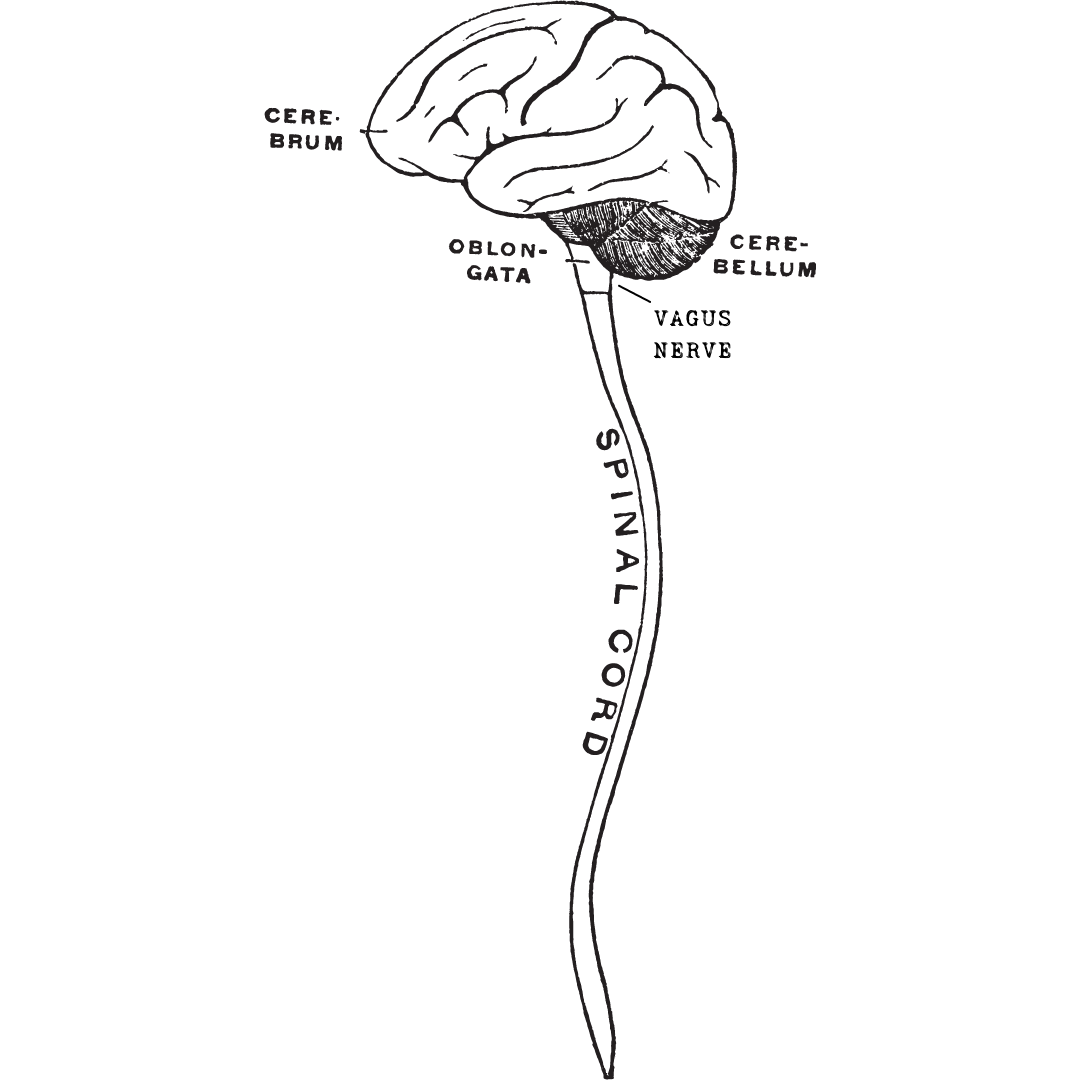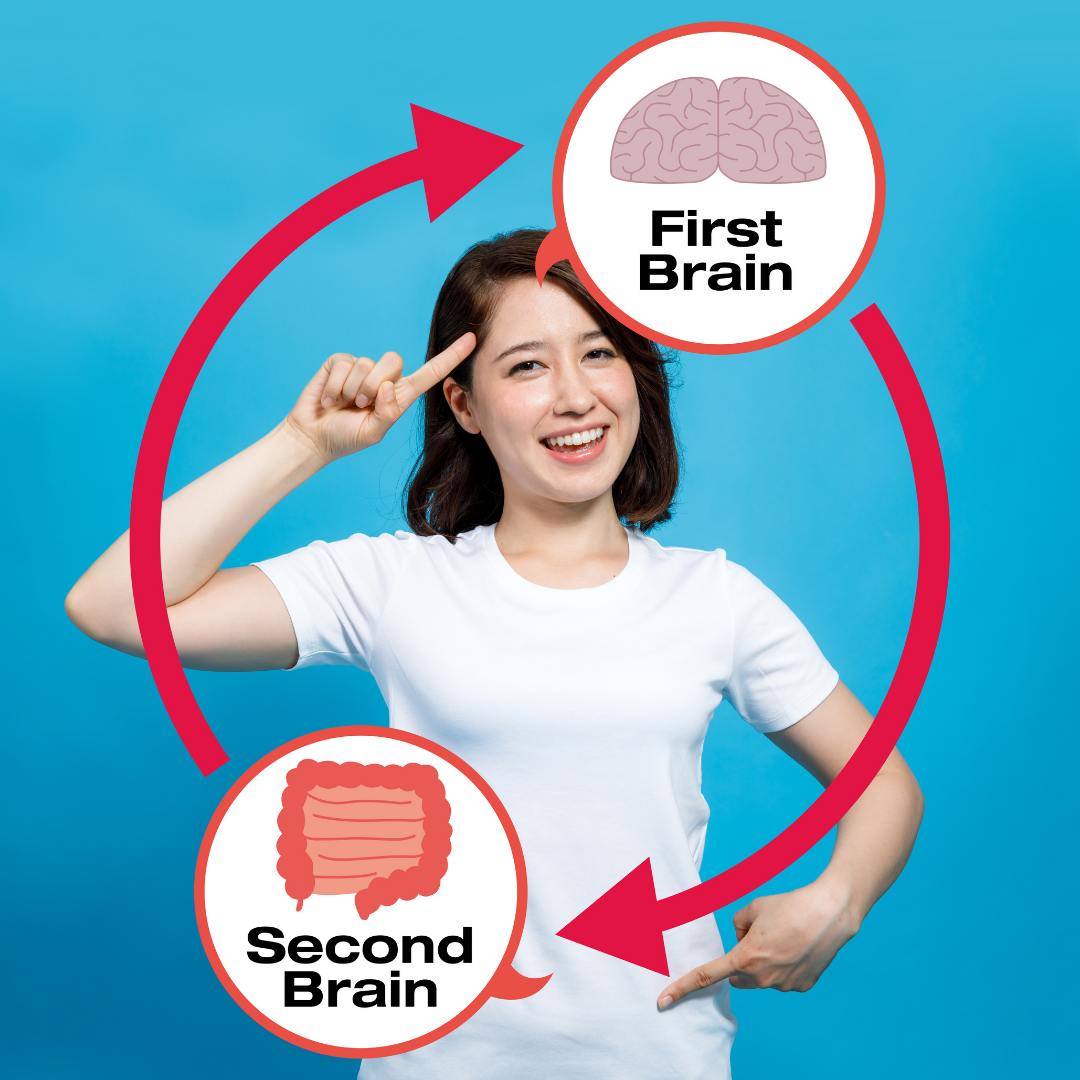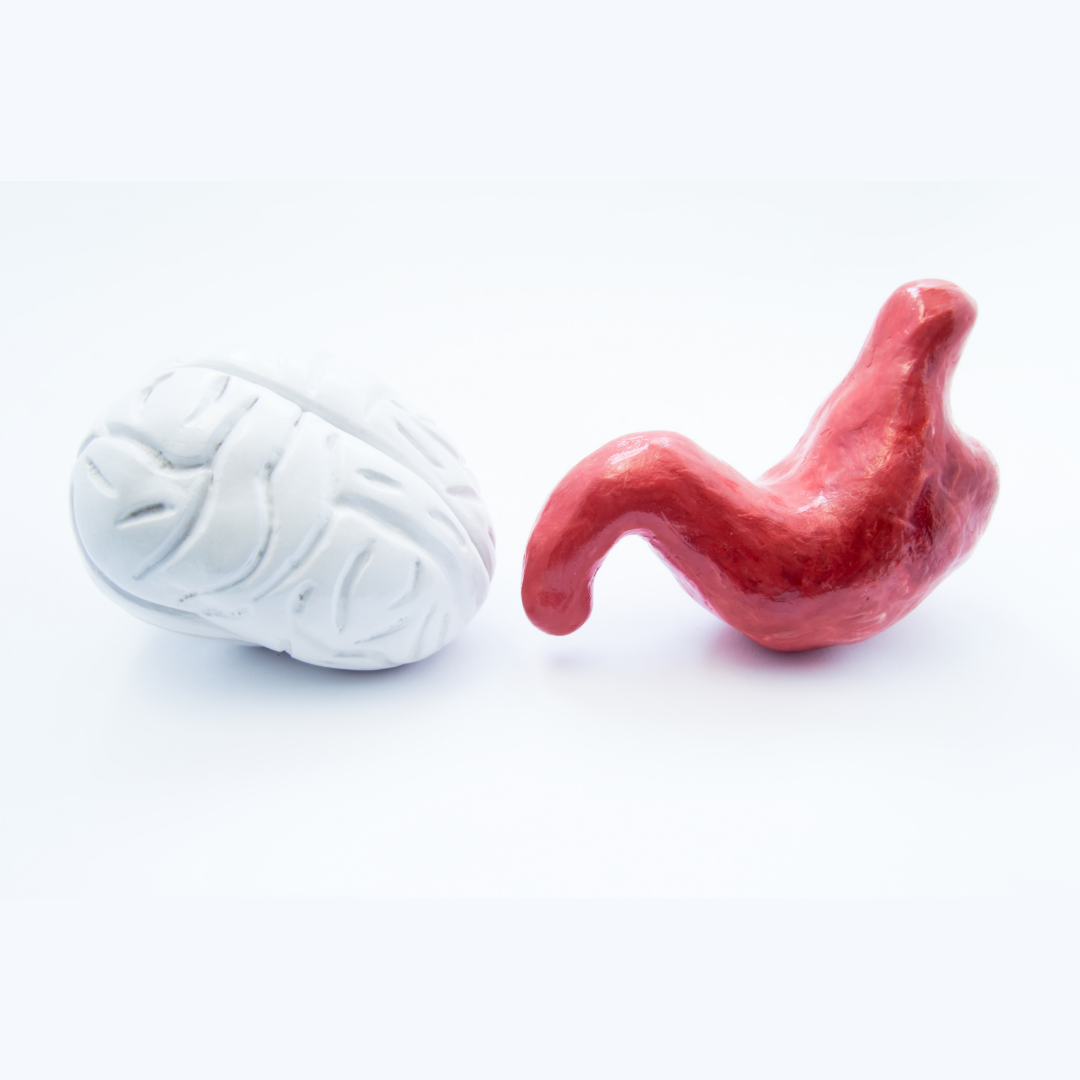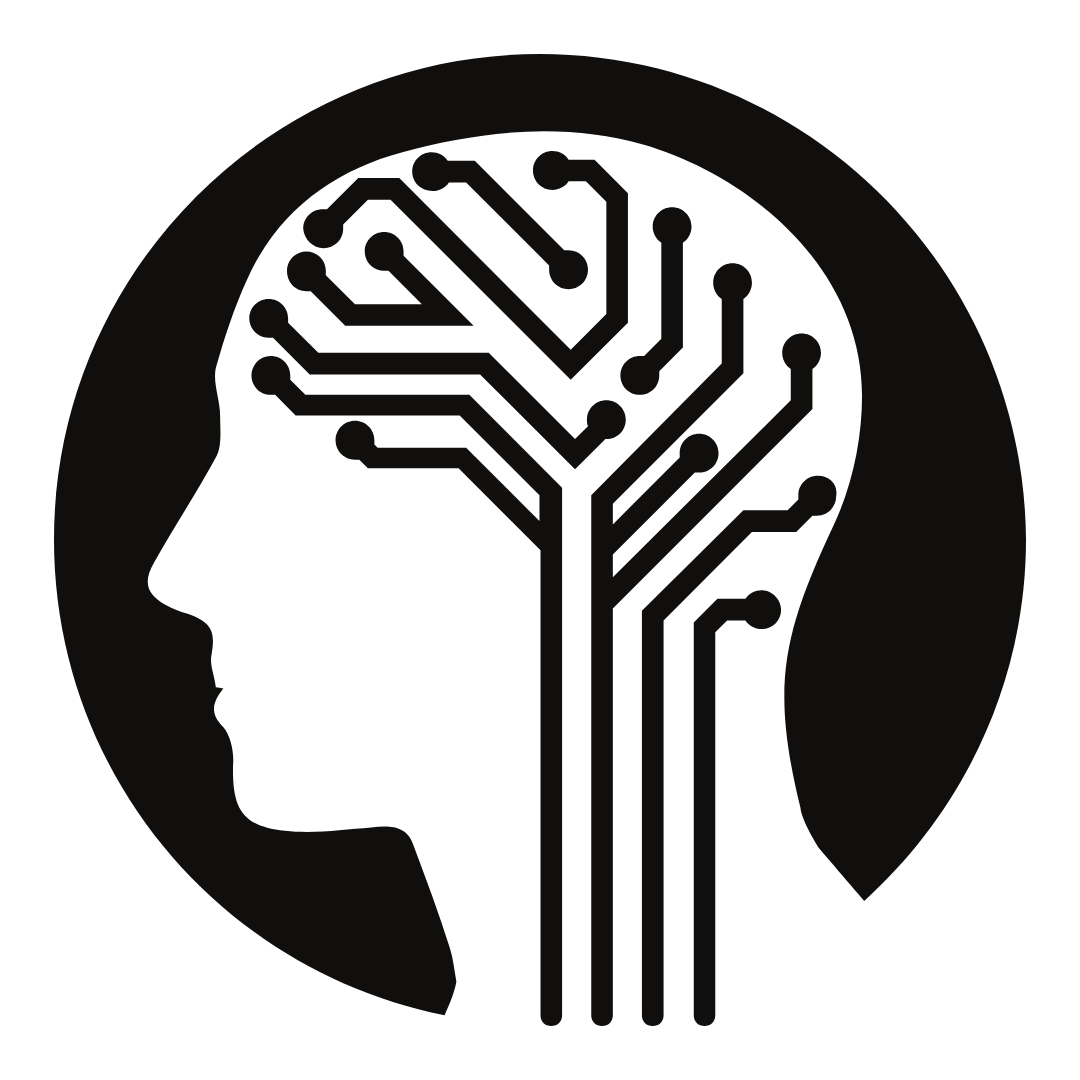KBW | The Vagus Nerve - What It Is, Why We Care, and What to Do About It

The Vagus Nerve, the longest cranial nerve in the body, literally connects your brain to pretty much everything else in your body. If that sounds important to you, that's because it is. (Kenny & Bordoni, 2021)
What is the Vagus Nerve, and Why Do We Care?

So what is this magical nerve? It originates in the brain stem and spreads throughout the entire body. “Vagus” means “wanderer'' in Latin because this nerve literally wanders through the entire body controlling the parasympathetic function of nearly every major internal organ, including the heart, lungs, and digestive tract.
The strength of the vagus nerve is measured by something called vagal tone, which is typically measured by HRV (heart rate variability). You can think of the vagus nerve as though it's a muscle that needs to be exercised regularly to keep up its “tone”. The better the vagal tone, the better your body can function as a harmonious system. In fact, studies are investigating stimulating the vagus nerve as a therapeutic target for epilepsy, rheumatoid arthritis, Crohn's disease, asthma, and even cardiovascular disorders like myocardial infarction and stroke. Would you be up for simple exercises to help prevent or treat a myriad of diseases? Keep reading to learn more.
(Capilupi et al., 2020)
The Gut-Brain Axis

One of the biggest areas of emerging research is the gut-brain axis. This is an incredible bidirectional highway where your brain talks to your gut, and your gut talks to your brain. This connection is involved in stomach acid production, digestive enzyme production, the migrating motor complex, peristalsis, inflammation, immune function, and more. It’s truly incredible how important this connection is, and it’s something to really pay attention to and nurture for optimal health.
If you’re still feeling unsure about what this connection is, think of a time you felt nervous or stressed. Where did you feel it? Quite often, the answer is that you felt it in your gut. Many people report feeling a “pit” in their stomach, or “butterflies” in their stomach, or feeling nauseous. That is a perfect example of the brain impacting the gut. But remember, this connection goes BOTH ways.
While numerous studies show the impact of the vagus nerve and the gut microbiome on the brain, the positive effects we see with a healthy gut microbiome in Autism, anxiety, Alzheimer's, and more disappear when the vagus nerve is severed! Once that connection is gone, the benefits are gone as well, which shows just how important a strong vagus nerve is for your health. In a recent study, researchers reversed symptoms of Autism in mice using specific probiotic blends. When they repeated the study with mice that had undergone a vagotomy (a surgical severing of the vagus nerve), the mice with severed vagus nerves saw no positive changes from the probiotic treatment. The vagus nerve is THAT important. It can mean the difference between treatments working or seeing no success at all.
(Sherwin et al., 2019)
The Vagus Nerve and Organs

In addition to being an extremely important connection between your gut and your brain, the vagus nerve impacts all of your major organ systems as well.
Heart: the vagus nerve can impact your heart rate, vascular tone, and heart rate variability or HRV (HRV is the variability from beat to beat and is used to measure the strength of the vagus nerve).
Liver: the vagus nerve regulates glucose homeostasis in the liver, which can have a big impact on blood sugar fluctuations, stability, and overall numbers.
Gut: the vagus nerve impacts gastric juice production, gut motility, and stomach acidity, all of which are crucially important for digestion. Poor vagal tone is something I always address in my clients with gut issues like SIBO, IBS, and IBD. <for more information on working with me click here>(Alex this should be linked to the heal from within page)
Brain: the vagus nerve works against the sympathetic response to stress and forms the connection of the “gut-brain axis”, allowing neurotransmitters formed in the gut to reach the brain and vice versa. This is hugely important when we are looking at anxiety, depression, stress responses, and more.
Blood vessels: the vagus nerve impacts vascular tone and blood pressure regulation, both important for cardiovascular health and the prevention of cardiovascular disease.
This is why it’s so important to work on improving the health of your vagus nerve. This nerve helps to control so many important processes in the body and is vital to your overall health!
Disorders Associated with Poor Vagal Tone:
Low vagal tone has been correlated to the following disorders:
Chronic fatigue
Fibromyalgia
Depression/anxiety
Alzheimer's
Parkinson's
Heart disease
Diabetes
Migraine/cluster headaches
PTSD
Autoimmune Diseases such as Rheumatoid arthritis, Multiple Sclerosis, Lupus, etc.
Obesity
Cancer
ADHD
IBS / IBD / SIBO / leaky gut
Asthma
How to Improve Your Vagal Tone (and your overall health!)

The key to improving your vagus nerve is consistency. Pick some exercises from the list and do them daily. I often tell my clients to “stack” their behaviors to make them strong habits and get the most bang for their buck.
For example, every time you take a shower, sing and hum loudly while you turn it all the way too cold for the last 30 seconds of the shower, and every time you brush your teeth, gargle for a bit as well!
And remember, the vagus nerve goes both ways, so you can impact it from the mind towards the body (therapy, meditation, prayer) or the body towards the mind (probiotics, gargling, cold showers). And ideally, you will work on improving it from both angles!

Mind→ Body Approaches
Meditation
Prayer
EMDR therapy
Time spent with loved ones
Laughter
Nerva App for guided meditations specific to gut health
The Gupta Training for guided medications is applicable to COVID long hauler syndrome, SIBO, IBS, Fibromyalgia, and more.
Click here to try one week of Gupta training for free!

Body→ Mind Approaches
Deep breathing (make sure you expand your diaphragm!)
Singing and humming to vibrate your vocal cords that are innervated with the vagus nerve
Yoga
Coffee enemas
Gargling (which also vibrates vocal cords)
Cold showers
Probiotics
In Conclusion
So many treatments for our health involve great expense, yet many of the vagus nerve exercises I outlined are free. This is an area I highly recommend everyone spend some time on, regardless of their health, as only positive improvements can come from a strong vagus nerve!

References:
Capilupi, M. J., Kerath, S. M., & Becker, L. B. (2020). Vagus Nerve Stimulation and the Cardiovascular System. Cold Spring Harbor perspectives in medicine, 10(2), a034173. https://doi-org.bigbrother.logan.edu:2443/10.1101/cshperspect.a034173
Kenny BJ, Bordoni B. Neuroanatomy, Cranial Nerve 10 (Vagus Nerve) [Updated 2021 Feb 7]. In: StatPearls [Internet]. Treasure Island (FL): StatPearls Publishing; 2021 Jan-. Available from: https://www.ncbi.nlm.nih.gov/books/NBK537171/
Sherwin, E., Bordenstein, S. R., Quinn, J. L., Dinan, T. G., & Cryan, J. F. (2019). Microbiota and the social brain. Science (New York, N.Y.), 366(6465), eaar2016. https://doi-org.bigbrother.logan.edu:2443/10.1126/science.aar2016
Are you ready to start feeling better?
My team and I are here to partner with you on your health goals.
Find out more about working with us here ↓


